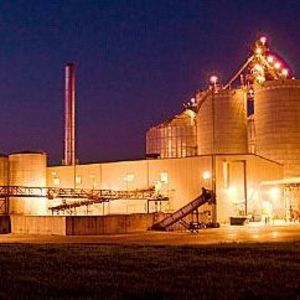East Kansas Agri-Energy announces renewable diesel project

East Kansas Agri-Energy LLC
July 24, 2014
BY East Kansas Agri-Energy LLC
East Kansas Agri-Energy LLC has announced its intent to integrate renewable diesel production at its ethanol plant in Garnett, Kansas. Renewable diesel will be made from the corn distillers oil (CDO) already produced at the plant along with other feedstocks purchased on the market.
Construction on the new facility will begin soon and will be complete in about 12 to 14 months. The plant will be able to produce 3 million gallons of hydrocarbon fuel per year, with the ability to double that capacity in the future.
"This is about maximizing revenue, leveraging activities that we already do every day, and enhancing the value of products we already produce now," said EKAE President & CEO Jeff Oestmann. "Adding renewable diesel capability aligns perfectly with our business strategy of diversifying our energy portfolio and creating additional enterprises that are sustainable on their own."
"The main driver is to create greater value for our unit holders," said EKAE chairman Bill Pracht. "We'll be taking advantage of our experience and current facilities to create two biofuels out of one kernel of corn. Furthermore, we'll be adding value to the corn oil we already produce."
Oestmann said that EKAE already has a receptive market for this new fuel. "We have positive relationships with customers and within the biofuels industry that have come to know EKAE as a reliable and trustworthy supplier," he said. "By using corn distillers oil we produce as the primary feedstock, we will have quality control that will underscore our reputation for quality in the marketplace."
Advertisement
Advertisement
"Sound management and fiscal responsibility have created a strong balance sheet for EKAE," said EKAE board member Scott Burkdoll. "We are in an extremely advantageous position to establish market leadership quickly and profitably."
"Our renewable diesel technology is commercially proven," said Ron Beemiller, president and CEO of WB Services, the technology partner on the project. "The process creates renewable diesel along with valuable co-products including steam, fuel gas and denaturant that are integrated into the ethanol plant. It is an elegant solution that adds value while reducing the carbon intensity."
Renewable diesel and biodiesel are similar in that they both utilize vegetable oil as feedstock—soybean oil, corn stillage, and animal fats and greases. But that's where the similarities end, Oestmann said.
"Whereas biodiesel has blending restrictions and seasonal concerns, renewable diesel is a true 'drop-in' fuel indistinguishable from the ordinary diesel fuel found at the pump," Oestmann added. "It does not present the blending and pipeline transportation challenges of biodiesel, and that may make it easier and less expensive for fuel marketers to integrate it into their operations.
Advertisement
Advertisement
Renewable diesel is feedstock flexible, which will allow EKAE to take advantage of commodity markets to improve margins.
Renewable diesel qualifies under both the “biomass-based diesel” category and the "other advanced biofuels" category in the renewable fuel standard (RFS). The fuel dramatically reduces greenhouse gas emissions compared to petroleum. Additionally, renewable diesel has a very low carbon intensity score under the low carbon fuels standard established by the California Air Resources Board, which opens up a huge West Coast market for EKAE.
According to Oestmann, the co-products of renewable diesel are more valuable than those from biodiesel, creating greater marketing and revenue opportunities. High value co-products of the renewable diesel process include naphtha, which is a common component in gasoline and is used in ethanol production as a denaturant. Another co-product is a fuel gas similar to pipeline natural gas, which will also be used in the ethanol process to reduce energy consumption.
Markets for renewable diesel are the same as petroleum derived diesel fuel including motor fuels (automobiles, trucks and rail), heavy duty equipment in agriculture and construction, and aviation fuel.
Related Stories
The European Commission on July 18 announced its investigation into biodiesel imports from China is now complete and did not confirm the existence of fraud. The commission will take action, however, to address some systemic weaknesses it identified.
Kintetsu World Express Inc. has signed an additional agreement with Hong Kong, China-based Cathay Pacific Airways for the use of sustainable aviation fuel (SAF). The agreement expands a three-year partnership between the two companies.
Broco Energy on July 17 announced a new partnership with the Massachusetts Port Authority (Massport) to deliver and transition Massport's fuel tanks to renewable diesel across its various facilities.
Shell Aviation, Accenture, and Amex GBT on July 10 announced Avelia is in the process of evolving to an industry solution with independent data hosting and a multi-supplier model helping users access the GHG benefits of SAF.
The U.S EPA on July 17 released data showing more than 1.9 billion RINs were generated under the RFS during June, down 11% when compared to the same month of last year. Total RIN generation for the first half of 2025 reached 11.17 billion.
Upcoming Events










